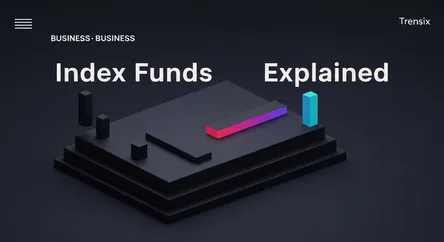Business
Index Funds Explained

Discover index funds, a simple and low-cost way to invest. Learn how these funds track market indexes like the S&P 500 to diversify your portfolio.
What is it?
An index fund is a type of mutual fund or exchange-traded fund (ETF) with a portfolio constructed to match a specific financial market index, such as the S&P 500. Instead of actively picking individual stocks, an index fund passively holds all the securities in its target index in the same proportion. This strategy provides broad market exposure and instant diversification, as a single investment gives you a small piece of hundreds or even thousands of companies. It's a form of passive investing that aims to replicate market performance rather than trying to outperform it.
Why is it trending?
Index funds are surging in popularity primarily due to their low costs and simplicity. They have significantly lower expense ratios compared to actively managed funds because they don't require expensive teams of analysts. The rise of the passive investing philosophy, championed by figures like Warren Buffett, has also fueled their growth. Decades of data show that a majority of actively managed funds fail to consistently beat their benchmark index over the long term, making low-cost index funds a statistically compelling choice for many investors seeking reliable returns.
How does it affect people?
For the average person, index funds democratize investing. They offer a straightforward, accessible way to build long-term wealth without needing deep financial expertise or a large initial investment. By regularly investing in a broad market index fund, individuals can participate in the overall growth of the economy. This low-cost, 'set-it-and-forget-it' approach is highly effective for retirement planning and achieving other long-term financial goals. It reduces the stress of trying to time the market, allowing people's money to grow steadily over time.